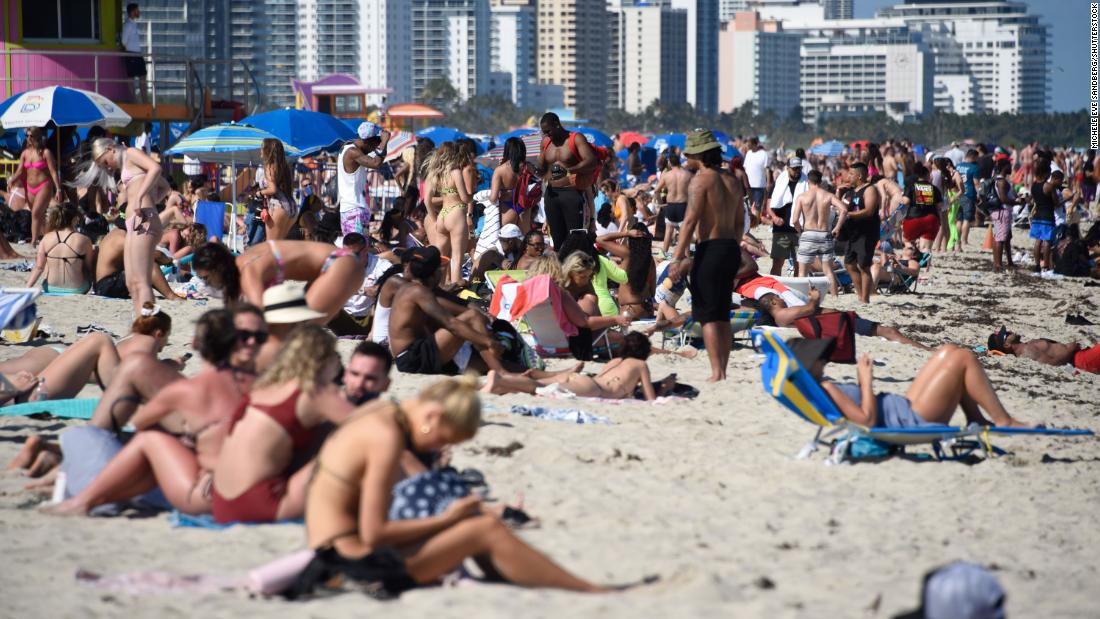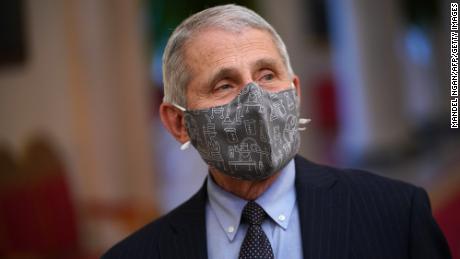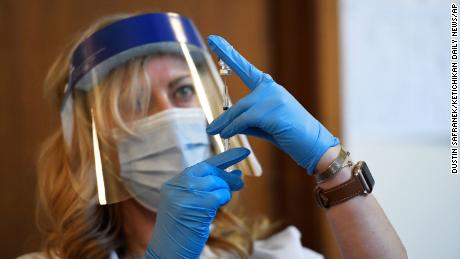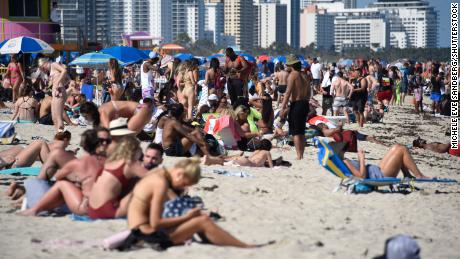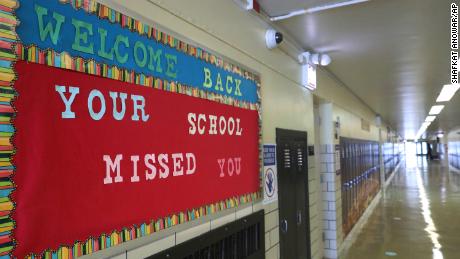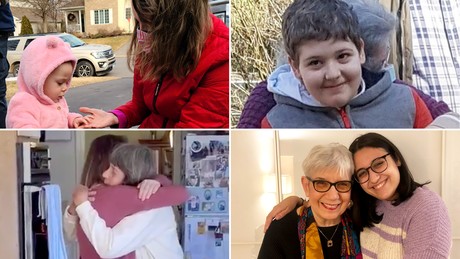The US is now in a ‘vulnerable’ spot with Covid-19. Don’t make the same mistakes Europe did, Fauci says
Covid-19 is still spreading rampantly and must be tackled aggressively if we want life to get back to normal soon, Dr. Anthony Fauci told CNN on Sunday.
Even though daily new cases have dropped since January, “over the last couple of weeks, they’ve plateaued,” said the director of the National Institute of Allergy and Infectious Disease.
“When you see a plateau at a level as high as 60,000 cases a day, that is a very vulnerable time to have a surge go back up. That’s what exactly happened in Europe.”
After promising declines in Covid-19 numbers, “they plateaued and they pulled back on public health measures,” Fauci said.
“The younger people, particularly, stopped wearing masks. All of a sudden, you have a surge that went right back up.”
France is also suffering another surge that’s setting the country back again.
Some surgeries have been postponed in the Paris area, and about 100 coronavirus patients must be evacuated to “other regions where the situation in ICUs is less tense,” government spokesperson Gabriel Attal said.
If we succeed in those efforts, “by the time we get into the early summer, the Fourth of July weekend, we really will have a considerable degree of normality,” Fauci said.
“We don’t want to let that escape from our grasp by being too precipitous in pulling back.”
Why travel is so risky right now
So this is not the time to travel, the CDC says, especially with highly contagious variants running wild.
“We are very worried about transmissible variants,” said Dr. Rochelle Walensky, director of the US Centers for Disease Control and Prevention.
“A lot of them have come through our travel corridors. So we’re being extra cautious right now with travel.”
Doctors say we should learn from our mistakes last year to avoid a repeat of the surges — and suffering — that follow.
“What we have seen is that we have surges after people start traveling. We saw it after July 4, we saw it after Labor Day, we saw it after the Christmas holiday,” Walensky said.
But many Americans have ignored such warnings, threatening to help spread the virus between cities and states.
‘Too many people coming here to let loose’
“Spring break in Florida could spell disaster for the country,” said Dr. Peter Hotez, dean of the National School of Tropical Medicine at Baylor College of Medicine. Anyone who gets infected there could easily spread the virus after returning to their home states.
According to the Transportation Security Administration, more than 1.3 million people were screened at US airports Friday. That’s the highest number in almost a year, since March 15, 2020.
“We’re seeing too much spring break activity,” Miami Beach Mayor Dan Gelber said.
“We’ve got a problem with too many people coming here. We’ve got a problem with too many people coming here to let loose.”
“We are concerned,” the mayor said. “It’s very challenging.”
Orlando Mayor Buddy Dyer urged revelers to stay safe while celebrating spring break.
Keep your mask on. Here’s why:
“I think we are letting loose a bit too early because we’re talking about lifting mask mandates,” emergency physician Dr. Leana Wen said.
“I understand reopening businesses. I want our businesses and our schools, our churches and other institutions to reopen. We can do that if we keep in place mask mandates.”
Oklahoma Gov. Kevin Stitt said he was doing away with any restrictions on events or residents and was removing a mask requirement in state buildings.
The removal of mask mandates flies in the face of what should be done as the B.1.1.7 strain picks up steam, said Dr. Francis Collins, director of the National Institutes of Health
“If there was ever a time to put on the mask, this is it,” Collins told MSNBC Saturday. “Every bit of data proves that mask wearing reduces infections, reduces deaths.”
Vaccines could help prevent transmission, not just illness
But the vaccines could also help protect people from getting infected and passing the virus to others, said Dr. Scott Gottlieb, former commissioner of the US Food and Drug Administration and a current Pfizer board member.
“All of the evidence across all the vaccines now is pointing in the direction that these vaccines reduce asymptomatic infection and reduce transmission,” Gottlieb told CBS’ “Face the Nation” on Sunday.
“If in fact this vaccine has a substantial impact on reducing transmission, it’s going to become a very important public health tool in controlling the epidemic,” Gottlieb said.
But there are several major challenges standing in the way of getting Covid-19 under control. They include “constrained vaccine supply, ongoing vaccine hesitancy and increasing myths and disinformation,” Walensky said.
And more than 36.9 million are fully vaccinated. That’s about 11% of the US population.
In efforts to boost vaccinations, many states are expanding the pools of people eligible to get a vaccine this week.
“The national supply of the vaccine remains limited,” state health officials said, “so appointments for the estimated 4.4 million Californians with these conditions or disabilities will not immediately be available to all who are eligible.”
CNN’s Naomi Thomas, Lauren Mascarenhas, Melissa Alonso, Rebekah Riess, Jacqueline Howard, Pete Muntean and Greg Wallace contributed to this report.
![]()


